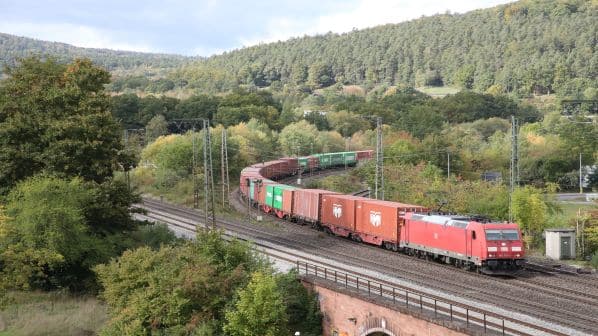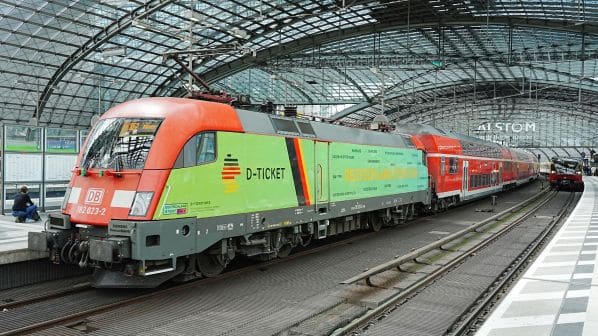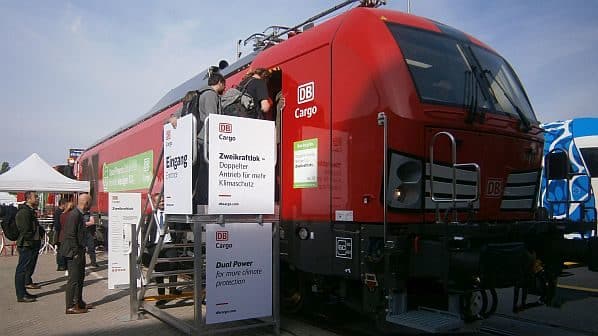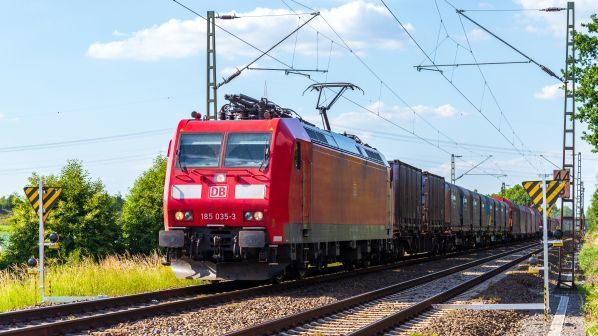DB Cargo, the freight business of German Rail (DB), has announced plans to restructure the company in a programme branded “Transformation”. This includes transferring some traffic, such as intermodal, to subsidiaries to enable it to concentrate on other flows, including block trains and wagonload freight.
Unions representing DB Cargo employees have told local media that DB intends to remove some traffic from the core business and transfer it to several wholly-owned lower-cost freight subsidiaries, with up to 1800 employees either transferred to these subsidiaries or made redundant.
DB has responded to the media reports of job losses, describing the union statements on job losses as “irresponsible scaremongering”, but admitting that internal staff transfers between DB companies are planned.
Intermodal traffic is the likeliest candidate to be moved to subsidiary companies TFG Transfracht and RBH Logistics (both wholly-owned by DB) and Mid-German Railway Company (MEG), where DB owns 80%.
DB Cargo is likely to focus on block trains operated for a single customer, which are less vulnerable to road competition, and single wagonload freight. While wagonload is highly unprofitable, it is likely to attract substantial government support in the next decade to deliver the policy objective of moving 25% of all freight by rail by 2030.
Figures released by one of the rail unions suggest that block trains represent 52% of current DB Cargo revenue and single wagonload traffic 28%, leaving intermodal with around 20%.
State aid investigation
The restructuring proposals come in the wake of the decision in 2022 by the European Commission (EC) to open a state aid investigation into DB Cargo. This follows years of losses effectively met by parent company DB and complaints that this has unfairly assisted DB Cargo when competing with private freight operators.
A similar investigation into the finances of French state-owned Fret SNCF resulted in the decision by the French government to break up the company and re-assign some traffic to competitors in order to avoid even more onerous penalties.
DB Cargo has made a loss every year for over a decade, in total losing nearly €4bn from its German operations on an Ebit basis. It last made a profit (on an Ebit basis) in 2012.
It is widely expected that the loss for 2023 will be around €500m, although the final figures have not yet been published. Despite these losses, DB invested heavily in DB Cargo between 2017-22, with €1.7bn spent on new locomotives and wagons.
Separately, further details are awaited on DB’s planned sale of its logistics subsidiary DB Schenker. Divestment of this profitable part of the business was announced in December, but no potential bidders have yet been announced.




